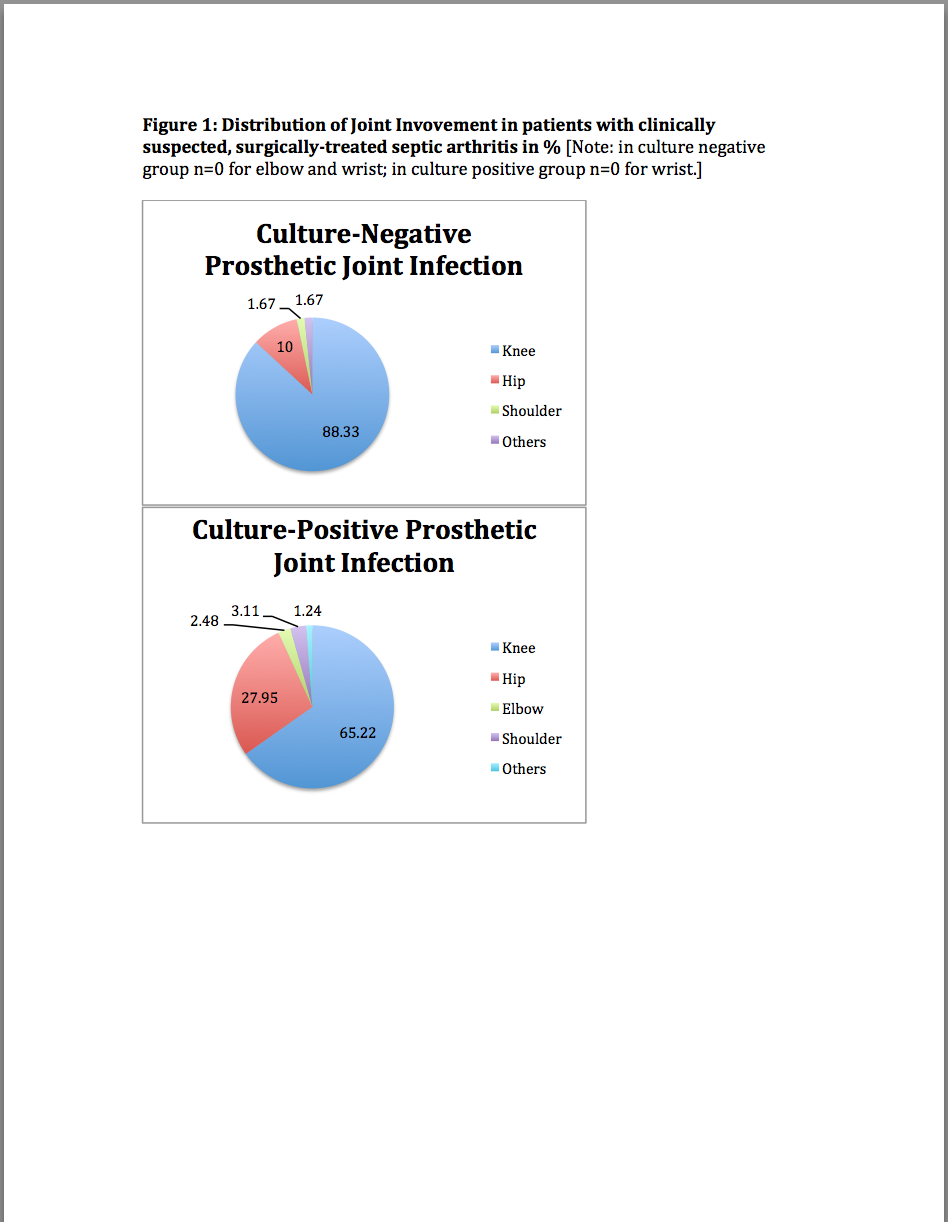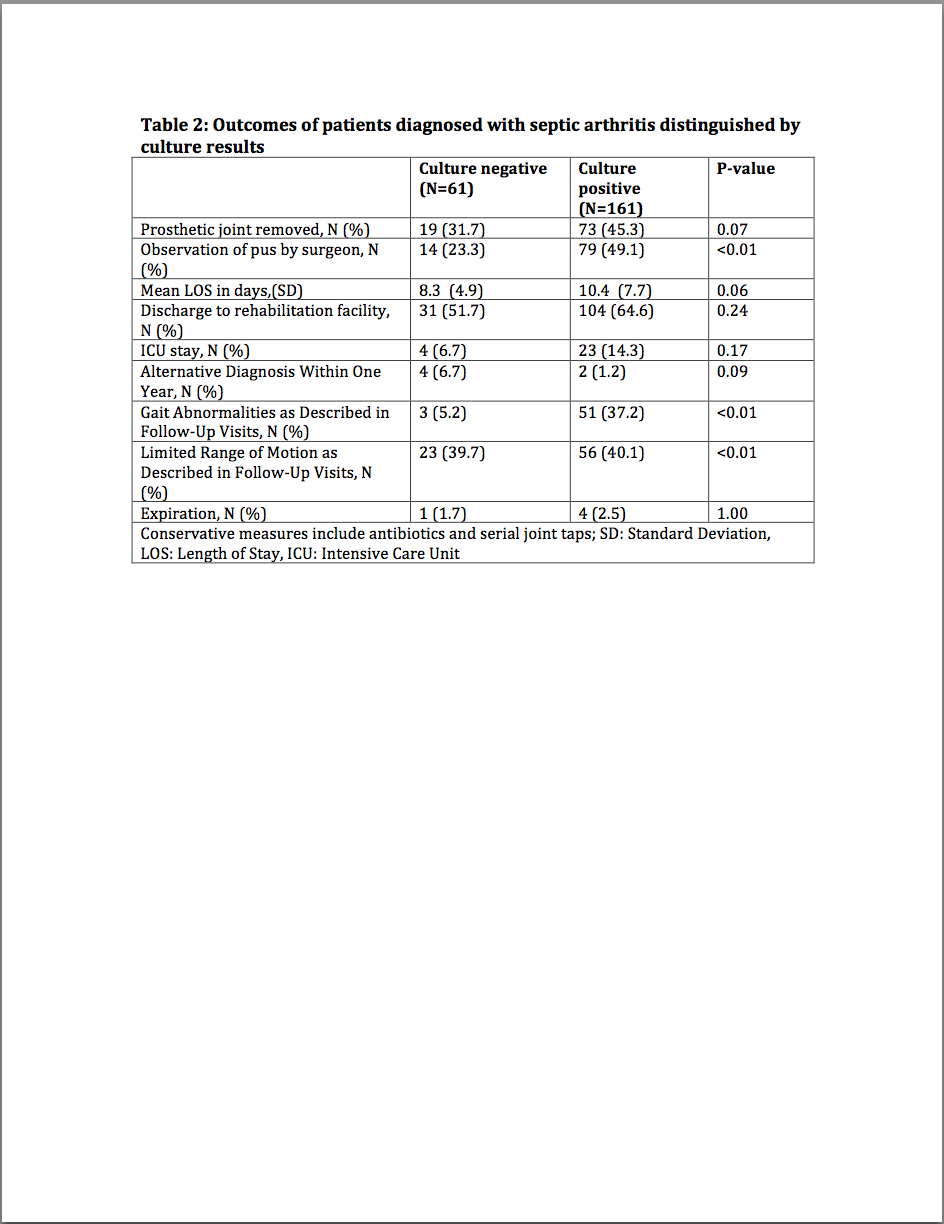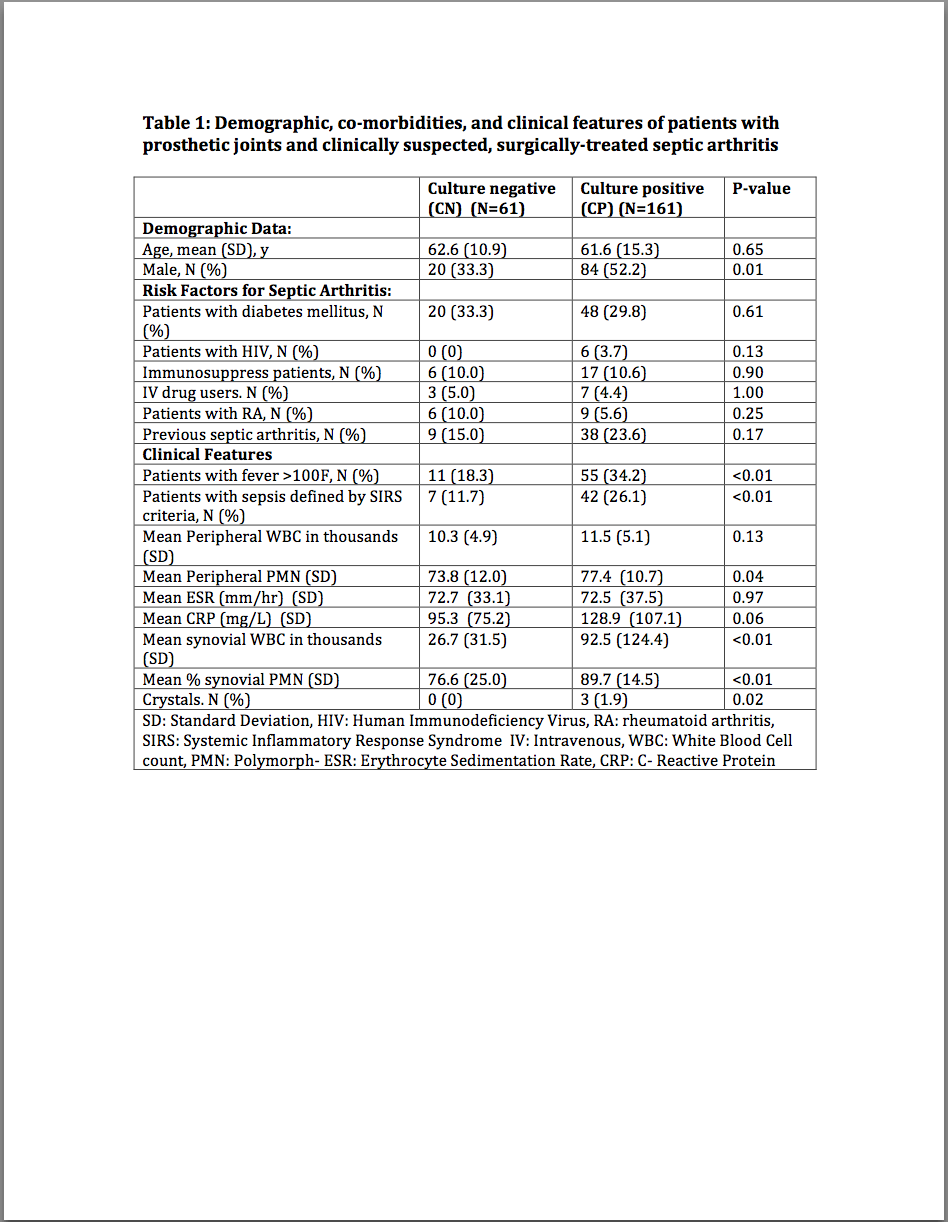Session Information
Session Type: ACR Poster Session B
Session Time: 9:00AM-11:00AM
Background/Purpose: Prosthetic joint septic arthritis (PJSA) may complicate joint replacement in approximately 1-2% of cases. Synovial fluid cultures are negative in up to 25% of cases making the diagnosis of PJSA and its management challenging. Most patients with suspected, but culture-negative (CN), PJSA are managed similarly to their culture positive (CP) counterparts. We hypothesized that patients with CN PJSA are different in their clinical course and outcomes and might warrant a more conservative approach. The purpose of this study was to compare the demographic features, clinical characteristics and outcomes of CN and CP PJSA.
Methods: We conducted a retrospective study including all patients ages 18 and older admitted to a single, tertiary-care hospital between 1998 and 2015 diagnosed with PJSA and treated with antibiotics and surgery. We excluded all cases of osteomyelitis, polyarticular or native joint infection.
Results: 220 patients with PJSA were identified; 61 were CN and 161 were CP and all received antibiotic therapy and surgery. The groups were similar with regard to age and presence of associated comorbidities; however, there was a male predominance in the CP group (p=0.013) [Table 1]. The most frequently involved joint was the knee, particularly in the CN group (p=0.001); hip involvement was relatively more common in the CP group (p=0.005) [Figure 1]. The clinical presentations and outcomes differed significantly between the two groups, with less severe disease [Table 1] and better outcomes [Table 2] noted among those in the CN group. In addition, the CN patients with PJSA tended to have a shorter hospital stay (p=0.06) and more alternative diagnoses established within one year (p=0.08).
Conclusion: This study suggests that patients with CN PJSA have less severe disease and a trend toward better outcomes. Our observations support the need for a prospective, randomized trial of patients with CN PJSA comparing the outcomes of surgical and non-surgical management.
To cite this abstract in AMA style:
Paz Z, Lieber SB, Moore A, Zhu C, Shmerling RH, Fowler ML. The Presentations and Outcomes of Prosthetic Joint Septic Arthritis: a Comparison of Culture-Positive and Culture-Negative Disease [abstract]. Arthritis Rheumatol. 2015; 67 (suppl 10). https://acrabstracts.org/abstract/the-presentations-and-outcomes-of-prosthetic-joint-septic-arthritis-a-comparison-of-culture-positive-and-culture-negative-disease/. Accessed .« Back to 2015 ACR/ARHP Annual Meeting
ACR Meeting Abstracts - https://acrabstracts.org/abstract/the-presentations-and-outcomes-of-prosthetic-joint-septic-arthritis-a-comparison-of-culture-positive-and-culture-negative-disease/



